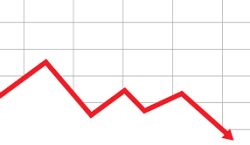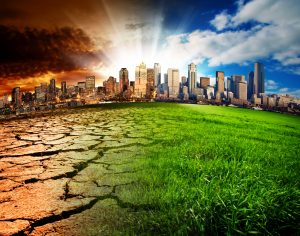

350Africa.org launches REPower Afrika to unite a movement behind renewable energy across the continent
Africa– On July 18th, 2024, during the hottest month of the year globally, 350Africa.org and partners launched REPower Afrika—an ambitious campaign uniting regional community renewable energy projects to urge financiers and governments across the world to prioritize and increase investments in affordable, reliable and clean energy.
Africa is disproportionately bearing the brunt of climate change, with 17 out of the 20 countries most threatened by climate impacts located on the continent. Recent severe weather events, including severe droughts in Southern Africa and heavy rains in Tanzania, Kenya, and Burundi have caused food shortages, fatalities, and displacement. Despite these alarming trends, plans to expand fossil fuel infrastructure, like the East African Crude Oil Pipeline (EACOP), continue to threaten both people and the planet.
The REPower Afrika campaign showcases the power and potential of community-led efforts igniting a renewable energy movement across the continent. Communities are standing up against harmful fossil fuels and demonstrating that renewable energy is a viable, equitable alternative. These efforts are fuelling hope for an energy-secure future and freedom from worsening climate impacts.
Urgent Call for Renewable Energy Investment and Policy Support
For Africa to realize a just transition to renewable energy, significant investment from financial institutions and developed nations is essential and urgent. African governments must create an enabling framework, enacting policies and regulations that facilitate the deployment of renewable energy and attract substantial investments.

Africa is disproportionately bearing the brunt of climate change, with 17 out of the 20 countries most threatened by climate impacts located on the continent.
Renewable energy is not only a sustainable choice but also a driver of economic development. While fossil fuel projects like EACOP are projected to create 200-300 jobs in Uganda, the International Renewable Energy Agency (IRENA) projects that renewable energy could generate 400,000 to 1.5 million jobs in East Africa by 2050.
Through the REPower Afrika campaign, communities in the EACOP region (Uganda and Tanzania) are showcasing the potential of renewable energy. Solar installations in communities along the EACOP pipeline are improving people’s lives, providing light for children to study but also developing green jobs and enhanced energy access whilst protecting the environment.
REPower Afrika is advocating for a future where renewable energy powers our communities, protects our environment, and promotes social and economic well-being. Ten (10) gatherings will be taking place across Uganda and Tanzania, with solidarity actions taking place in the Democratic Republic of Congo, Benin, Togo, Ghana, and Nigeria.
Quotes
“REPower Afrika marks the beginning of a transformative journey where communities at the frontline of the climate crisis take the lead in demanding accessible, affordable, and safe energy for all while creating millions of green jobs. Africa’s wealth of renewable energy potential presents a great opportunity for the continent to not only address its own energy needs but also potentially lead the global energy transition. By working together with governments, civil society, and community leaders, we can create a supportive environment for community-centered renewable energy solutions, avert climate disaster, and ensure a sustainable future for all. This is the time for Africa and the Global South to replace the obsolete energy model and fuel a development powered by renewables. ” Landry Ninteretse, Africa Regional Director at 350.org
“Uganda faces a significant energy access challenge which hinders economic development and negatively impacts the quality of life for many Ugandans. The high upfront costs, limited financing options, policy and regulatory barriers, and competition from other energy sources are major obstacles to improving electrification rates. To address these challenges, REPower Afrika advocates for off-grid solutions like solar home systems and mini-grids and supports innovative financing models. Additionally, policy reforms and community engagement are crucial for
creating a supportive environment for private sector investment and ensuring the long-term sustainability of solar projects. REPower Afrika is empowering communities to own and have a voice in the demand for a just transition to a community-centered renewable energy system.”
“We are witnessing firsthand the devastating impacts of climate change across Tanzania and Africa. From deadly floods and erratic rainfall to prolonged droughts devastating crops and livelihoods, the toll on our communities is profound. Despite global agreements like the Paris Agreement, there’s a glaring gap between promises made and the real-life struggles of those most affected. Climate funding often misses the mark, neglecting projects that could directly benefit vulnerable communities. It’s time for actionable policies that prioritize clean energy solutions, including tax incentives and local manufacturing of renewable technologies, to secure a sustainable future for Tanzania.” Rehema Peters, Founder of Partnership for Green Future
“The main barrier to renewable energy across Africa is finance. For the sources of finance, we must turn to the rich countries and corporations that have exploited African countries for fossil fuels and have imposed huge amounts of historical debt to drive their own prosperity within rich nations, with no regard for the development or harmful impacts on communities within Africa itself. It’s time to expose the super-rich and the most polluting industries and tax their billions. The money generated by a global wealth tax could help drive forward the renewable energy transition with the kinds of community-driven projects REPower Afrika is putting center stage.” Agnes Appiah-Hall, Global Campaigns Director at 350.org
350Africa.org is a grassroots movement dedicated to addressing the climate crisis by promoting sustainable, community-driven renewable energy solutions and advocating for climate justice across the African continent.